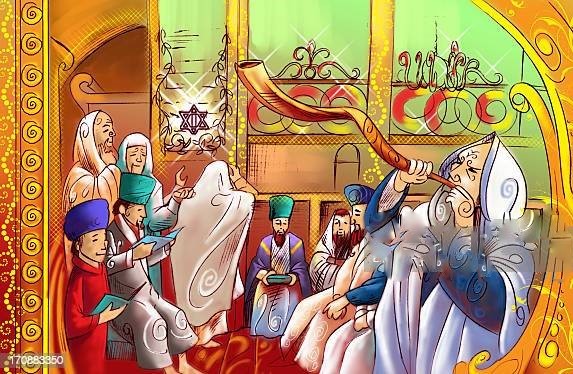 SATURDAY PRAYER: GEVURAH-YESHIVAT HAVERIM יְשִׁיבָה חברים – BABYLONIAN TALMUD p153
SATURDAY PRAYER: GEVURAH-YESHIVAT HAVERIM יְשִׁיבָה חברים – BABYLONIAN TALMUD p153

READING: BETWEEN MIDNIGHT AND DAWN OF SATURDAY
R. Hisda and Rabhina differ as to the consequences of one withholding to perform his
necessities. One is of the opinion that foul breath is the result, while the other holds that the
entire body assumes a bad odor. The opinion of the latter is supported by the following Boraitha:
“He who takes nourishment while in need of performing his necessities is compared to a stove in
which a fire was built without previously removing the ashes, which is invariably the cause of a
bad smell. One who feels like performing his necessities, but cannot do so, R. Hisda advises that
he keep on sitting down and getting up until able. R. Hanan from Neherdai advises him to look
for another place, but the rabbis say the sole remedy is to think of nothing else.”
The rabbis taught: One who is about to eat a hearty meal should walk ten times four ells or four
times ten ells, then perform a (natural) necessity, and after that go in and sit down to the meal.
MISHNA V.: The prescribed quantity of fragments (of earthenware) is the size of such as are
placed between two boards, is the decree of R. Jehudah. R. Meir says, of a size sufficient to stir
a fire with. R. Jossi, of a size to receive (hold) a quarter of a lug. Said R. Meir: Although no
positive proof for my assertion can be found in the Scripture, still a vague reference can be
deduced from the passage [Isaiah, xxx. 14]: “So that there cannot be found among their
fragments a sherd to rake fire from a hearth.” Said R. Jossi: “Therefrom you would adduce your
proof? It says immediately after that [ibid., ibid.], ‘and to draw water from a pit.'”
GEMARA: We must assume that the prescribed quantity allowed by R. Jossi is larger than that
allowed by R. Meir; but the scriptural text shows that R. Meir allows the larger; because, is it
possible that the prophet will curse them with a larger object after having cursed them with a
smaller? Said Abayi: R. Meir also means a fragment used to stir a big fire with; hence his
fragment is larger than R. Jossi’s.
“Said R. Jossi,” etc. Is not R. Jossi’s answer correct? What could R. Meir rejoin? R. Meir might
say that the prophet intends to convey that not only shall they not have anything of the least
value left, but they shall not even have anything that is as valueless as a piece of fragment big
enough to contain a drop of water.
 HALF REDUCTION OF FLOW IN THE INNER LEFT COURT FOR GREATER DISCLOSURE OF THE UPPER FORCE
HALF REDUCTION OF FLOW IN THE INNER LEFT COURT FOR GREATER DISCLOSURE OF THE UPPER FORCE WEDNESDAY PRAYER: KETER-SHACHARIT שַחֲרִית MORNING PRAYER
WEDNESDAY PRAYER: KETER-SHACHARIT שַחֲרִית MORNING PRAYER WEDNESDAY PRAYER: KETER-TIKKUN CHATZOT תקון חצות-TIKKUN RACHEL & TIKKUN LEAH
WEDNESDAY PRAYER: KETER-TIKKUN CHATZOT תקון חצות-TIKKUN RACHEL & TIKKUN LEAH